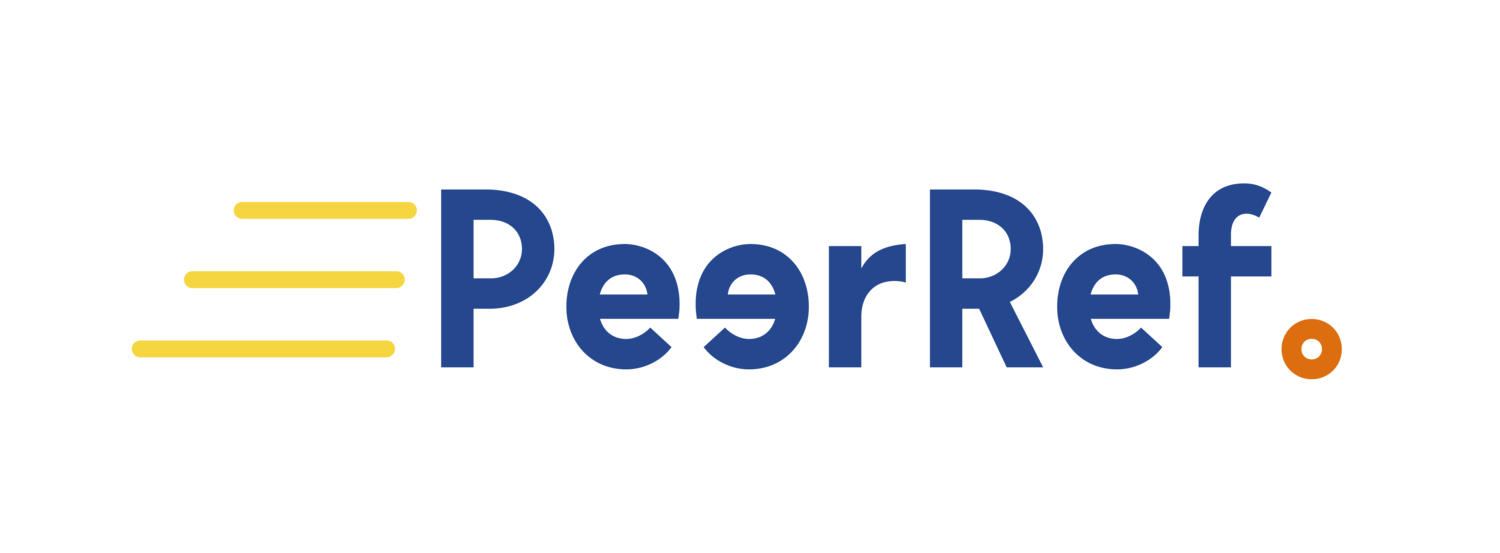About us
We are creating a single point of peer review that makes research assessment open, efficient, and researcher-centric
Research and its communication is the foundation of technological and societal progress. Peer review is an essential part of the scholarly communication process, providing an independent assessment of the rigour and validity of research so that it can be improved, trusted, and built on. Despite the importance of peer review, its traditional form lacks diversity and transparency and delays research.
We launched PeerRef, a journal-independent open peer review platform, in 2021. Our goals are to make peer review open, provide researchers with greater choice in how their research is shared and evaluated, and eliminate the need for repeated peer review in successive journals.
We help researchers to verify, improve and expand research by organising peer review for their preprints. We are reducing the barriers to accessing peer review, and using tools to select expert referees. By publishing signed peer review reports on our platform we are creating a single point of peer review, which will provide publishers with verified preprints. Editors can assess these for journal fit and then publish immediately. This new approach will accelerate research and eliminate repeated peer review at multiple journals.
Open
The open peer review of research can create more trust and accountability in research and its assessment. The reviews themselves are also valuable to the research community. Open reviews can provide more context to research articles, can be used to train reviewers, and can be used in research assessment. Open peer review allows referees to receive credit for their contributions and have their output recognized by the scientific community, funders, and institutions.
Journal-Independent
With PeerRef, referees do not act as journal gatekeepers or consider whether a piece of research is suitable for a specific journal. The rigour and validity of the research are at the centre of the assessment, which allows referees to focus on constructive feedback.
We do not rely on journal editors to select referees. We use a tool-first approach to identifying suitable expert referees for all types of research. This method is accurate and efficient. It also enables us to invite referees from groups that are typically excluded from peer review such as early-career researchers and researchers from mid and low-income countries.
Author Choice
Our journal-agnostic approach allows authors to access peer review for more types of research and lets them decide which of their work seeks journal publication. Authors can request peer review for research that can benefit from feedback but can not typically access peer review such as negative results or iterative studies. Authors can decide if their package of preprint and its peer reviews are the final product, or if they submit their research to a journal for publication.
A Single Point of Peer Review
With over 5 million journal publications each year, researchers spend 100 million hours on peer review. Due to high journal rejection rates, almost half of all research must undergo repeated rounds of peer review at successive journals. Therefore, up to 50 million hours of researcher time is wasted on repeated peer review each year. Repeated peer review is delaying research and wasting time which could be spent conducting research and making discoveries. By publishing signed reviewer reports, we are creating a single point of peer review. This helps journal editors by providing them with verified research that they can publish without further assessmnet. We can elimante repeated peer review, accellerate reserach and allow research to focus on making discoveries.
PeerRef is revolutionising the publication process and making peer review better for everyone. You can join us by requesting peer review, registering as a referee, or enquiring about a publisher partnership.
Team
-

Elliott Lumb, PhD — Founder and CEO
Elliott founded PeerRef following his PhD in medicinal chemistry and experience in several roles at an Open Access publisher.
-

Tom Carney — Technical Lead
Tom is a software engineer. He brings technical expertise and startup experience to PeerRef.
-

Melissa Lumb — Design Advisor
Melissa is a professional designer and business founder. She is responsible for PeerRef’s design.


